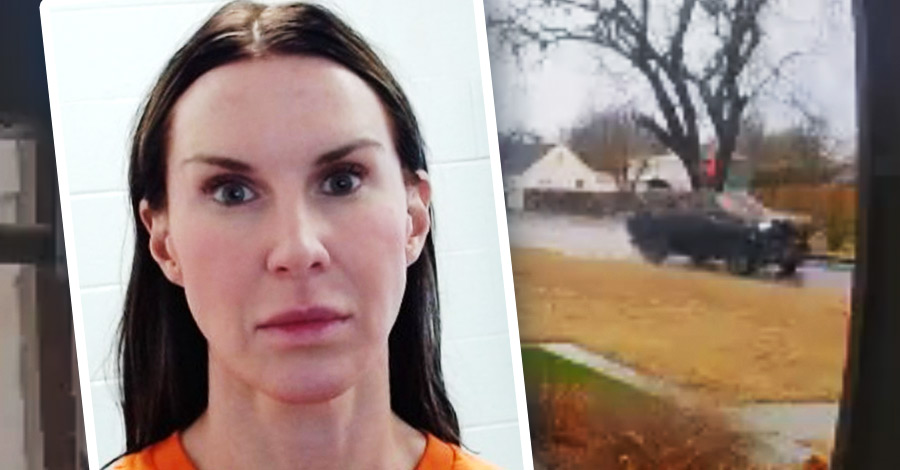
Chesapeake Energy is one of the most prominent, visible and well-respected companies in Oklahoma City. They employ thousands of Oklahomans and treat them well. They spend millions on local charities, foundations and the community. They, along with other energy companies like Devon and SandRidge, have been instrumental in improving the quality of life in Oklahoma City. They also put up a mean Christmas light display.
Of course, you already know that stuff. You know it because A) it's kind of true, and B) Chesapeake and McClendon receive ridiculously favorable and one-sided coverage by our local media. It seems like you can't pick up a copy of The Oklahoman without reading some story touting the wonders of natural gas, the safety and efficiency of fracking, or how the future will be a great place when all of our cars run on compressed natural gas. I've even heard the Journal Record is working on a special issue called "A Tribute to our Esteemed and Glorious Energy Leaders."
In the national media, though, things are different. They ask tough questions, reply to those answers with even tougher questions, and then do things like compare Chesapeake Energy to Enron. From the Christopher Helman's cover story in the upcoming issue of Forbes:
Some Chesapeake skeptics compare the company to Enron, something that sends the usually affable McClendon into a “highly insulted” rage. “We are the definition of the anti-Enron,” he says. “They sold all their oil and gas assets; that’s all we have.” In the largest sense McClendon is correct: Enron is a two-syllable synonym for fraud, and as much as Chesapeake’s tactics can be criticized, they are transparent, and I’ve never found anything or heard anyone that suggests illegal behavior.
Instead much of the similarity is cultural: Just as Enron in Houston a decade ago, Chesapeake is the surging company in an energy-reliant town, popping its name on the local pro sports arena, filling up the skyline (McClendon’s campus feels more like a university, with 20 low-slung buildings, mostly in Georgian style) and gobbling up the local smartest guys in the room. Some of those comparisons also stem from complicated accounting. Sharp-penciled analysts like Phil Weiss at Argus Research and Bob Brackett of Bernstein Research both consider those VPPs to be off-balance-sheet debt—loans to be repaid in gas instead of cash. Through them, Brackett says, Chesapeake is “effectively helping to achieve [its promised] debt reduction by sweeping debt from on-to off-balance-sheet vehicles.” (The company disputes this.)
S&P and Moody’s also consider VPPs to be off-balance-sheet debt. Last year, when Chesapeake used VPP proceeds to retire debt, Moody’s balanced that out by counting the VPP as new debt. It also tagged Chesapeake on retiring $2.6 billion in debt with proceeds from issuing convertible preferred stock, counting it as 50% equity and 50% debt. Audit Integrity, a watchdog group, ranks Chesapeake’s accounting “aggressive.” Carl Icahn saw the danger. In 2010 the activist investor bought a 6% stake for $1 billion and agitated for slashing the debt. By the spring, he’d convinced McClendon to sell $5 billion in assets and sold his own shares—for a $500 million gain.
Even though Helman deflects the Enron analogy, can you imagine anything like that ever appearing in The Oklahoman? I doubt it. This is the same media outlet that pulled a 2009 Don MeCoy blog post that simply mentioned McClendon was auctioning a large portion of his vast and valuable wine collection. Here's what we wrote back then:
It kind of makes you wonder if The Oklahoman was pressured by Aubrey McClendon (or his friend Clay Bennett) to remove the post. If that’s the case, is that the behavior and policy you would expect from a publication that claims to be “state’s most trusted news?” Something tells me a “trusted” new organization would stand by a story that reflects the (deteriorating?) wealth of one of our state’s wealthiest citizens, regardless of who he happens to be friends or business partners with.
In my opinion, this is just more proof that you can’t really trust The Oklahoman. Aubrey McClendon could force a group of imprisoned midget rowers to tend to his indulgent wine collection and The Oklahoman would probably just write a story about everything he has done for midgets and the rowing community. It could be raining the day of the OPUBOC employee picnic and The Oklahoman would probably change the weather report to “Sunny and Beautiful” just to get more people to show up. And they would do all that because they not only like to report the news, but control it, too.
That state’s most trusted news? Whatever.
Anyway, I've included links to the main Forbes article and accompanying pieces. The articles are a bit technical in spots and you may need an MBA to understand all the lingo, but they are definitely worth reading. As an Oklahoman who's forced to drink the "Chesapeake is Good" Kool-Aid on a daily basis, it's refreshing to see a different point of view on our corporate steward and ambassador. We should probably take note that Chesapeake may not be as stable, sound and permanent as our local media and civic leaders would make us think; that not everything taking place near 63rd and Western is rosy and flavorful like a fine Bordeaux wine.
• Billionaire Wildcatter, Risk Addict Aubrey McClendon Has Bet It All On Shale
• Aubrey McClendon Versus The 'Fracktivists'
• In His Own Words: Chesapeake's Aubrey McClendon Answers Our 25 Questions





